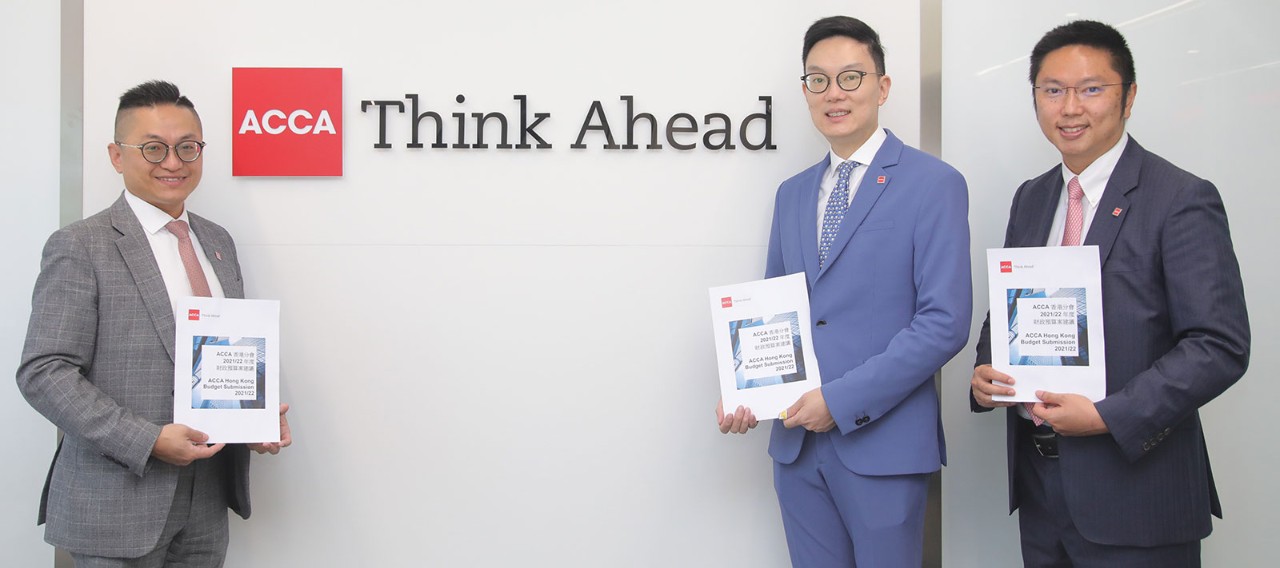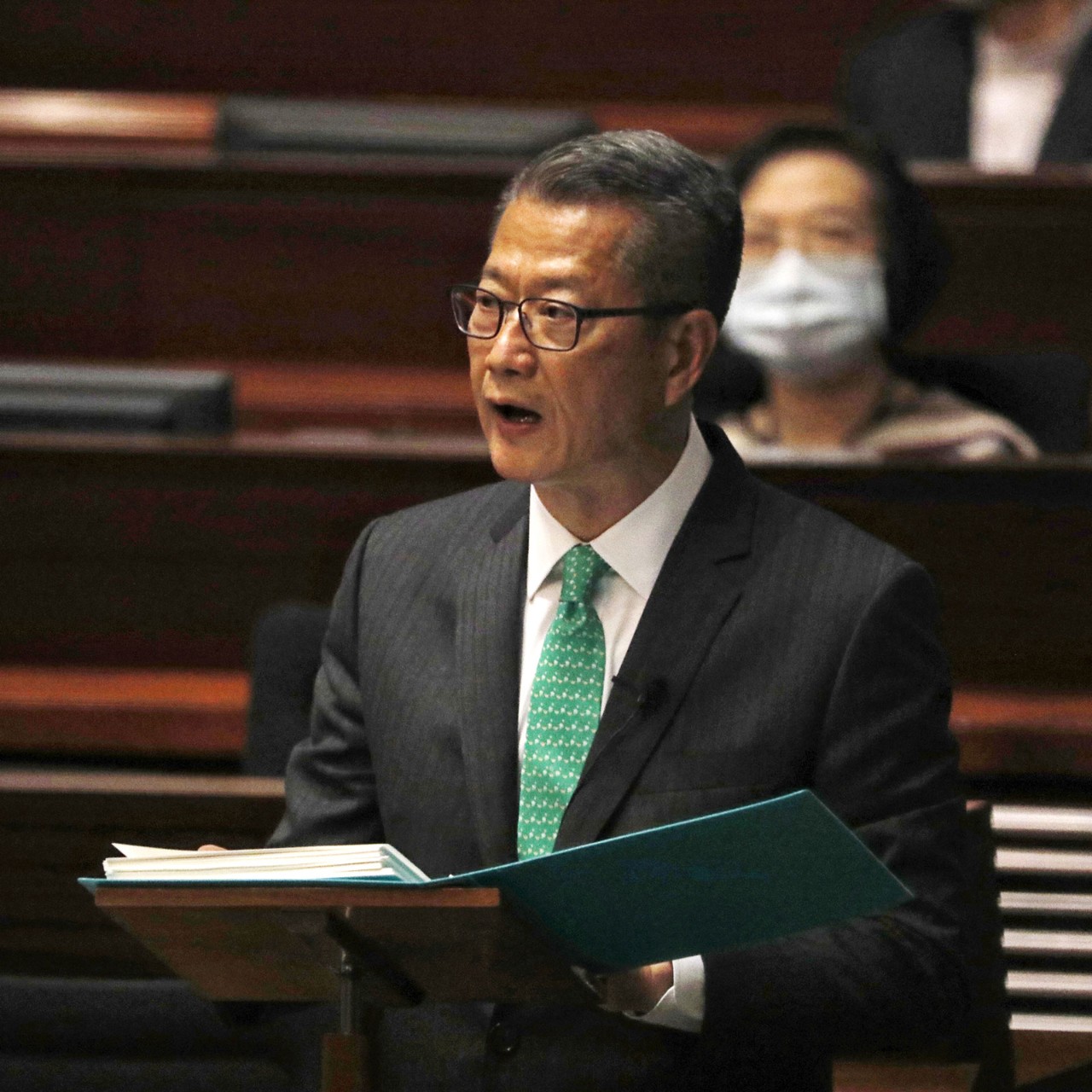
With Hong Kong facing a record-high fiscal deficit of nearly HK$260bn, Paul Chan, the financial secretary of the special administrative region, warned that it may have to brace for a period of austerity. Offering fewer giveaways than last year, Chan said the Budget was a balancing act between stabilising the economy and alleviating people’s burden.
ACCA Hong Kong’s tax subcommittee co-chairmen – Charles Chan, Wilson Cheng and Stanley Ho – give their views on the Budget, and look at which recommendations from ACCA’s Budget submission were included.
In view of the fiscal deficit, how would you rate the Budget?
CC Overall, the Budget was quite balanced. On the one hand, the financial secretary tried to manage public expectations by profits tax and salaries tax refunds, and offering consumption vouchers of HK$5,000 to every Hong Kong permanent resident aged 18 or above. On the other, he introduced measures to help businesses and citizens to recover from the devastation caused by the pandemic.
The government forecasts an overall growth rate of 3.5%–5.5% during 2021, but the financial secretary has ensured he has the financial flexibility to address any future challenges.
WC While there were fewer big giveaways than the previous Budget, the financial secretary announced a number of measures to help reposition Hong Kong’s economy over the short and medium term, while keeping a watch on government spending.
If previous economic downturns are anything to go by, Hong Kong’s economy could bounce back within one or two years. Fiscal reserves are reasonably healthy when compared with many other economies, which means the financial secretary has the reserves to intervene if he needs to. Hong Kong’s fiscal reserves are expected to drift lower to HK$902.7bn by the end of March 2021, from about HK$1 trillion a year ago.
‘We were delighted to see funding for upskilling people, which aligns with our recommendations’

SH The financial secretary should be noted for his courage, especially his receptiveness to new ideas. For example, the digital consumption vouchers serve the primary purpose of helping the economy recover. Also, the increase in stamp duty levied on stock trading to 0.13% from the existing 0.1%, payable by both buyers and sellers, is expected to raise HK$13bn.
The financial secretary showed he is confident that any concerns from investors about the rise in stamp duty – the first increase in three decades – will be outweighed by Hong Kong’s attractiveness as an international finance centre. Furthermore, the schemes to attract open-ended fund companies, limited partnership funds and real estate investment trusts is a boost for the asset management industry. This will help to develop Hong Kong into a competitive, preferred fund domicile.
Which areas were you pleased to see aligned with the ACCA’s recommendations?
SH As Hong Kong transitions to a digital, value-added services economy, we were delighted to see the financial secretary provide funding for upskilling people, which aligns with our recommendations. The HK$6.6bn allocated to create 30,000 time-limited jobs in both the private and public sector is also welcome.
WC We were pleased to see that many of our estimations and recommendations followed a similar line to the content of the financial secretary’s Budget – for example, the proposals to develop Hong Kong’s role in intellectual property and logistics in the Greater Bay Area. However, he didn’t include the incentive of granting deductions on development costs for Hong Kong companies that develop their businesses in the Greater Bay Area.
CC We welcome some of the steps to ease the cashflow burden of SMEs and individuals, which we advocated. The SME financing guarantee scheme to provide enterprises with low-interest loans or interest subsidies will help to alleviate some financial pressure. Similarly, the low-interest bank loans – capped at HK$80,000 – targeting about 245,000 unemployed who lost their jobs due to the pandemic, will help at this difficult time.
Will enough be done to support the community?
CC In addition to relief on salaries tax, overall the Budget provides quite a few measures that benefit the wider community, including the middle class. Homeowners will receive relief on rates and household utility bills, including electricity and water rates. In addition, the HK$5,000 digital voucher will benefit all levels of society.
WC Of course, there are those in society that will always wish for the government to do more, but in view of the record-breaking deficit, it is a good strategy to allocate resources to those with the biggest needs while still providing a range of benefits to the middle class.
SH Another way the government has set out to help the community is through funding training and upskilling programmes. And funding has been allocated to promote Hong Kong through large-scale publicity and promotional campaigns at home and abroad from various perspectives such as finance, IT, culture and creativity and tourism.
‘The Budget is prudent yet practical, given the fiscal deficit and high unemployment level’
Did the Budget make any major changes to Hong Kong’s tax system overall?
SH Given the economic challenges Hong Kong is currently facing, now may not be the right time for the financial secretary to make substantial changes to the tax system. However, he did include subsidies for Real Estate Investment Trusts that come to Hong Kong for listing.
CC The financial secretary referred to the global development of BEPS 2.0 and the need for Hong Kong to have a holistic review on the system to meet global compliance norms and revenue needs while at the same time ensures that the special administrative region remains an attractive place to live and conduct business.
WC While the financial secretary didn’t include any elaborate changes, he indirectly included support for businesses with various incentive mechanisms, including a HK$9.5bn allocation to the Hong Kong Innovation and Technology fund over two years.
Are there incentives for upskilling individuals to prepare for the new economy?
SH The allocation of funds to create new jobs and for upskilling is a positive step, although it remains to be seen how upskilling can be successfully achieved. For instance, does the government have the necessary data to effectively identify which groups need support? Also, what sort of training will people in the tourism, retail and food-and-drink sectors – which have been badly affected by the pandemic – need to enable them to transform to a new economy?
Were there any strategies to expand Hong Kong’s role in the Greater Bay Area?
CC While the Budget was prepared with a view to buffering the impact of recession, it was an opportunity to stress the importance of integration with the Greater Bay Area. The financial secretary pointed out the benefits of both short-term and longer-term benefits. For example, even with the availability of vaccines, international travel restrictions are likely to remain for some time, so economic recovery needs to be created locally. Driven by domestic consumption across the Greater Bay Area, it makes sense for the financial secretary to focus on business development strategies for short-term as well as longer-term economic recovery.
What opportunities were missed?
WC There were recommendations we made that can be revisited. Taken as a whole, the Budget is prudent yet practical, given the fiscal deficit and high unemployment level. The financial secretary has addressed short-term needs without losing sight of the future.
CC While the financial secretary was prepared to try new ideas, such as providing loans for the unemployed and digital consumption coupons, his strategies to help Hong Kong to bounce back from the pandemic have been deployed without introducing substantial new tax burdens.
SH The Budget included some good ideas, along with the infrastructure for these ideas to be further developed in the future.





